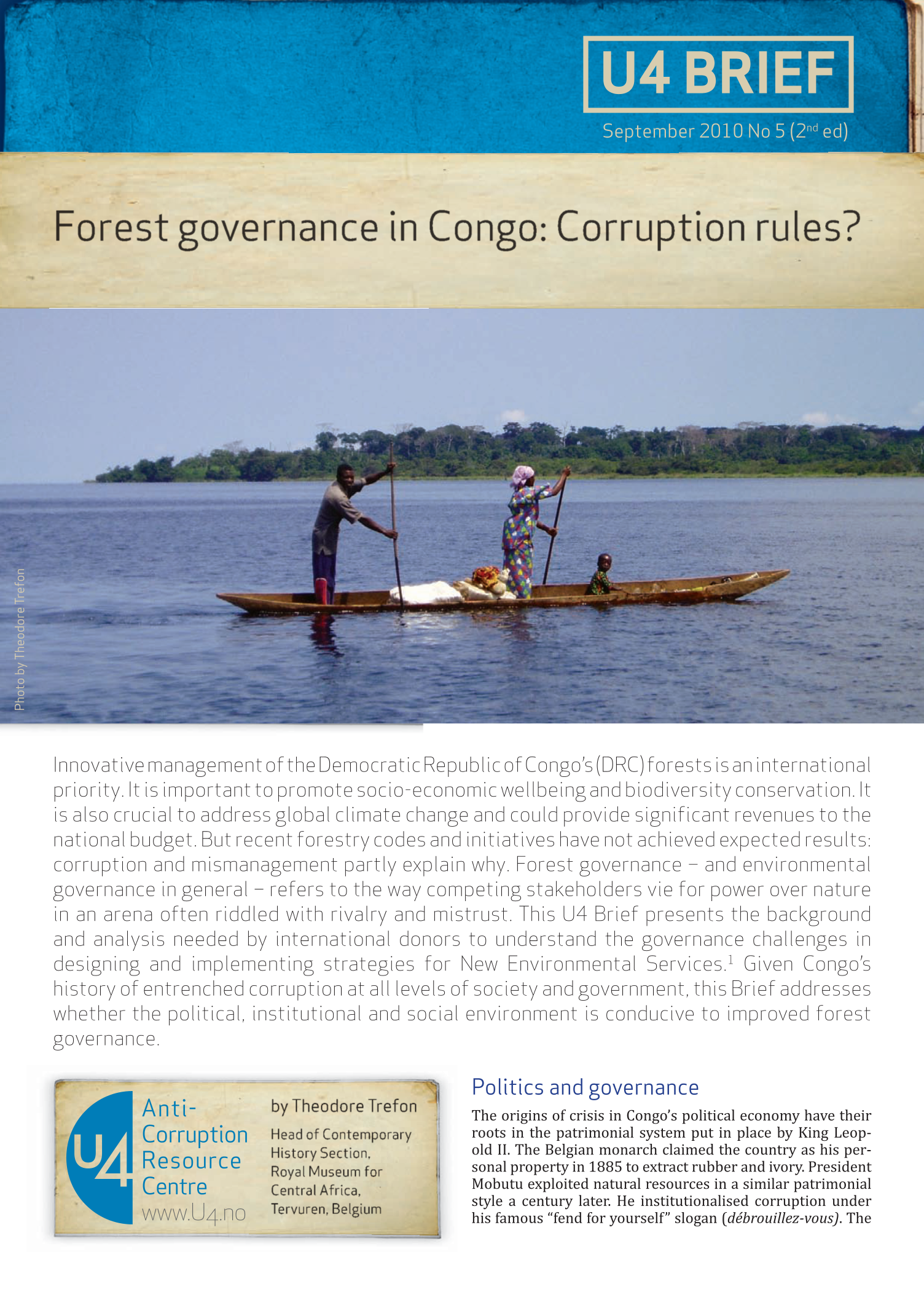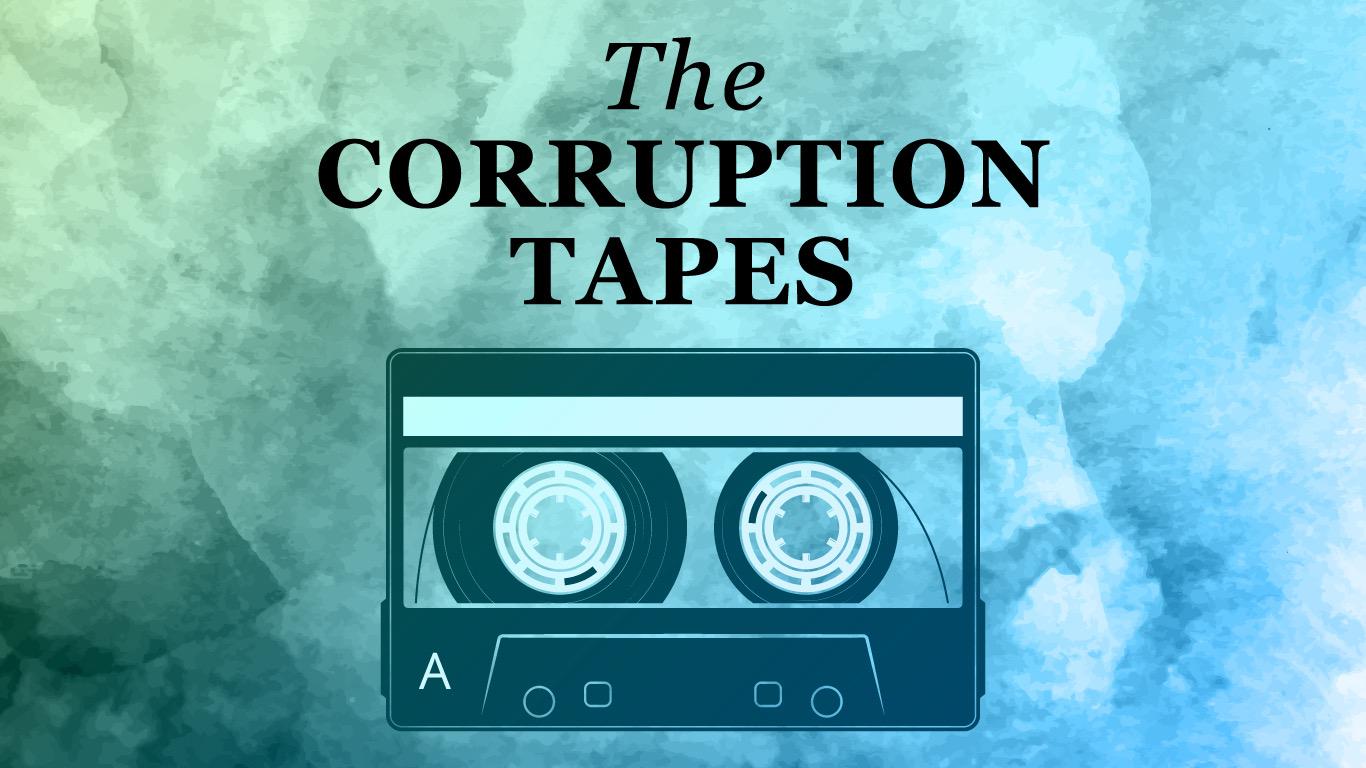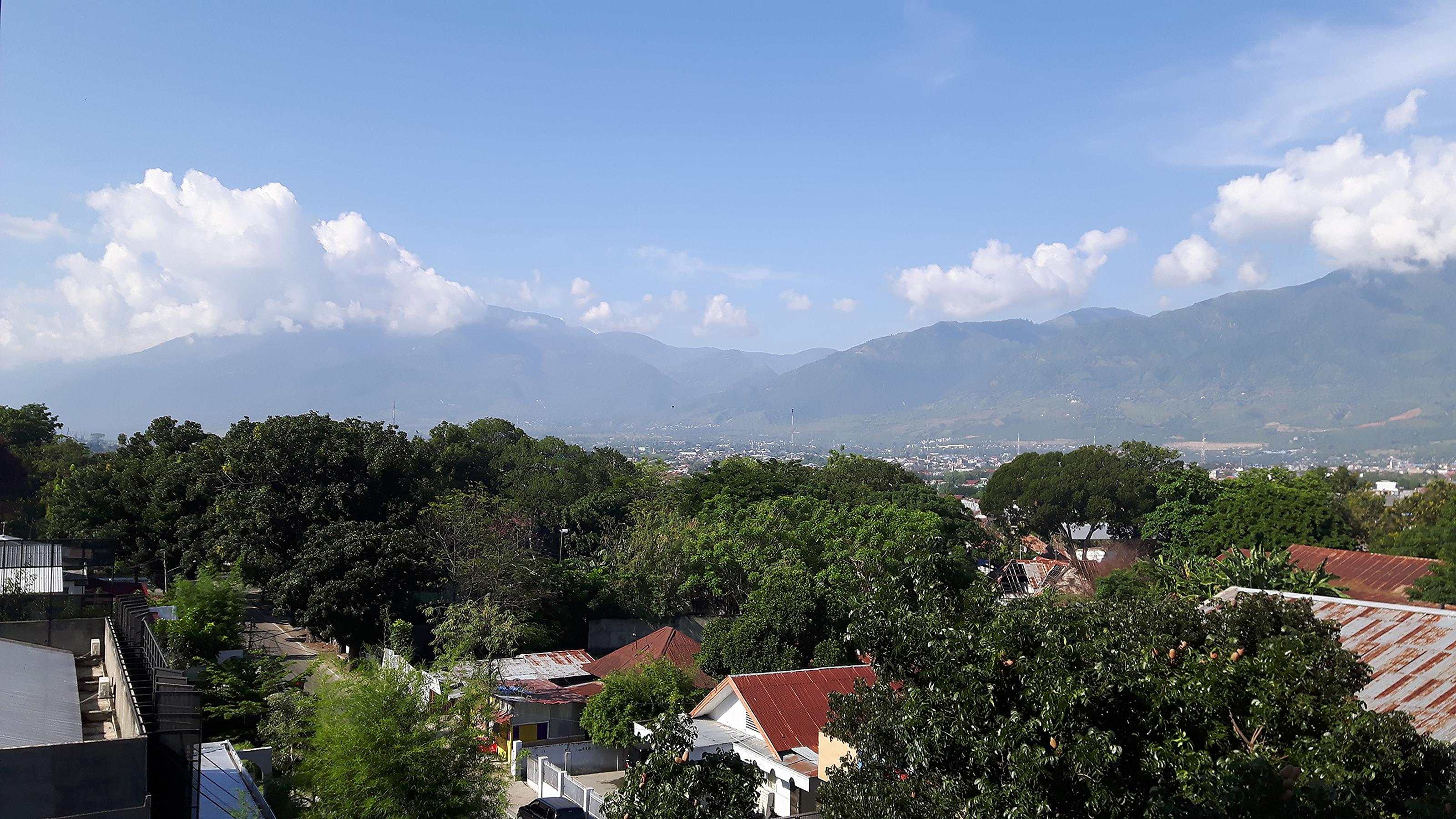U4 Brief
Forest governance in Congo: Corruption rules?
Innovative management of the Democratic Republic of Congo’s (DRC) forests is an international priority. It is important to promote socio-economic wellbeing and biodiversity conservation. It is also crucial to address global climate change and could provide significant revenues to the national budget. But recent forestry codes and initiatives have not achieved expected results: corruption and mismanagement partly explain why. Forest governance – and environmental governance in general – refers to the way competing stakeholders vie for power over nature in an arena often riddled with rivalry and mistrust. This U4 Brief presents the background and analysis needed by international donors to understand the governance challenges in designing and implementing strategies for New Environmental Services.1 Given Congo’s history of entrenched corruption at all levels of society and government, this Brief addresses whether the political, institutional and social environment is conducive to improved forest governance.

Cite this publication
Trefon, T. 2010. Forest governance in Congo: Corruption rules? Bergen: Chr. Michelsen Institute (U4 Brief 2010 No 5) 4 p.
Disclaimer
All views in this text are the author(s)’, and may differ from the U4 partner agencies’ policies.
This work is licenced under a Creative Commons Attribution-NonCommercial-NoDerivatives 4.0 International licence (CC BY-NC-ND 4.0)


